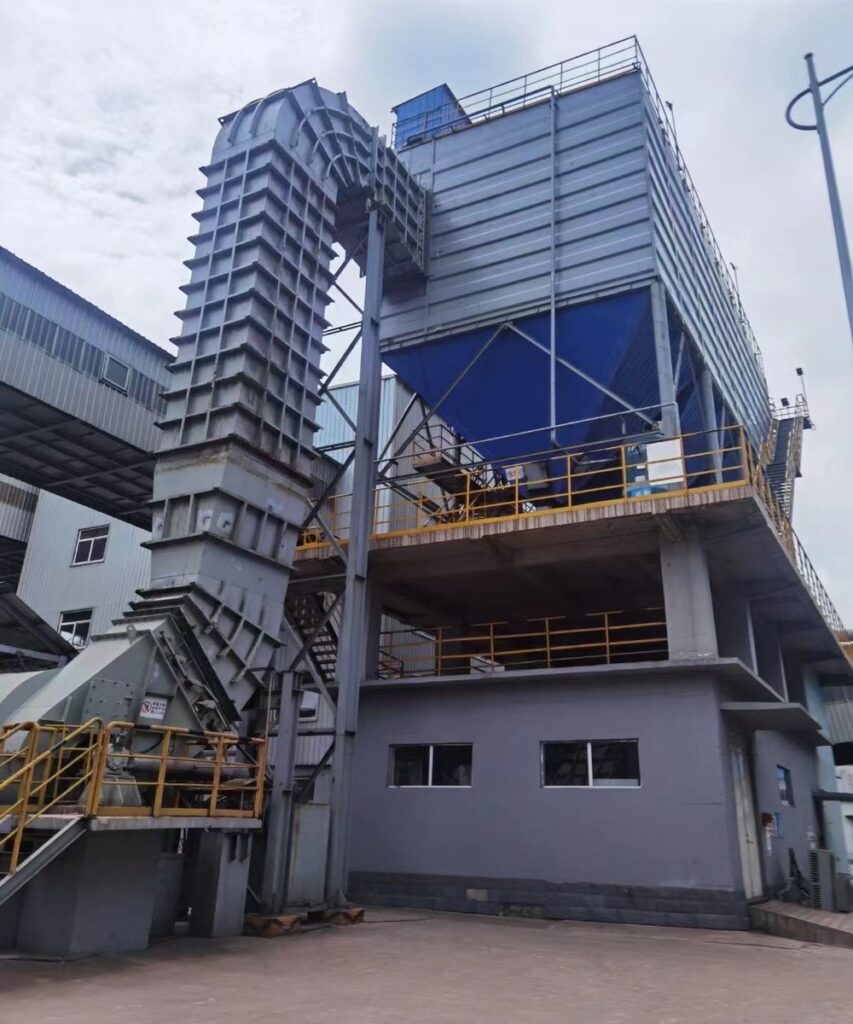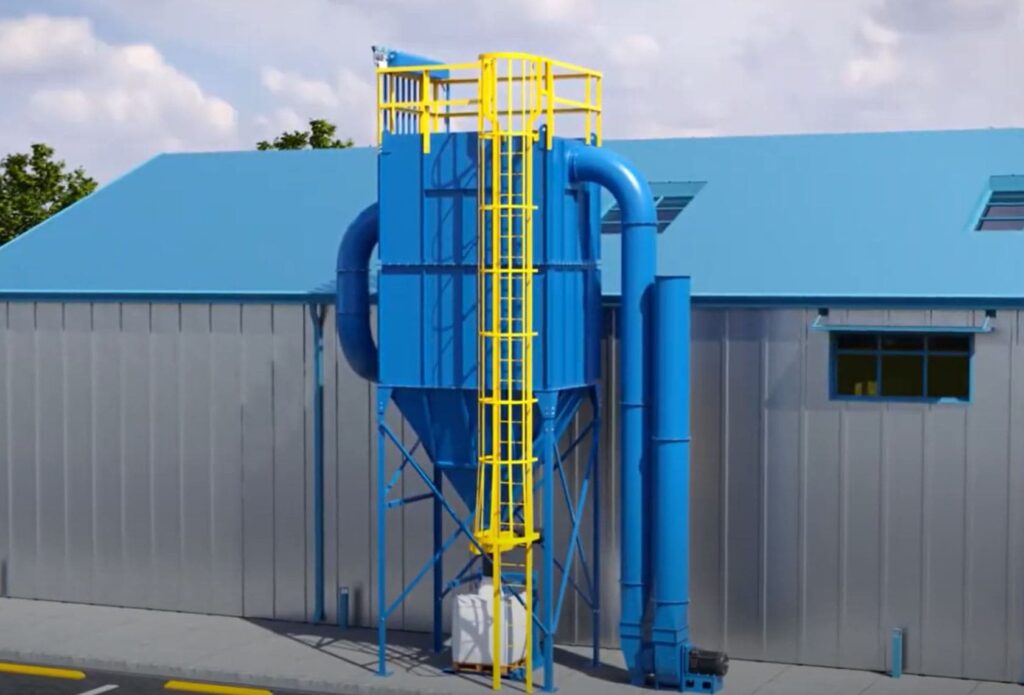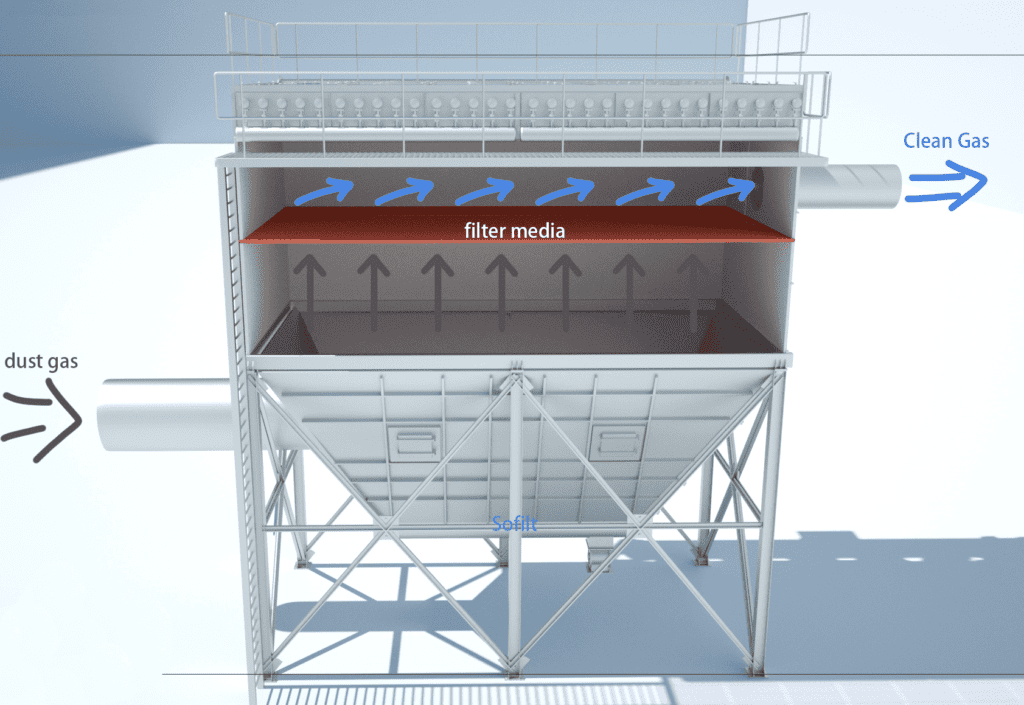Introduction

China is one of the most industrialized countries in the world and as such, it has a vast number of industries. A significant part of these industries require dust collector filter bags to remove dust particles and other pollutants from the air. Filter bags are available in a variety of materials, sizes, and shapes to meet the needs of different plants.
China is also one of the world’s largest producers of industrial dust collectors and filter bags. The country produces a wide range of filter bags for a variety of applications, including food and beverage processing, metalworking, woodworking, printing and packaging, chemical processes and cement plants. Sofilt has been on the forefront of filter bag production in China, offering more than 60 different types of bags ranging from standard to custom-made models.
There are a wide variety of dust collector filter bags used in plants in China, depending on the specific needs of the plant and the type of dust being collected. Some common types of dust collector filter bags used in plants in China include:
Polyester filter bags
Polyester dust filter bags are bags made of polyester material that are used to filter out dust and other particles from air or gas streams. They are commonly used in a variety of industries, including power generation, cement manufacturing, pharmaceuticals, and food processing, to name a few.
Polyester dust filter bags are generally made of a woven or non-woven fabric, and they can be treated with a variety of coatings or finishes to improve their filtration efficiency or make them resistant to certain chemicals or temperature extremes.
Some common types of coatings used on polyester dust filter bags include PTFE (polytetrafluoroethylene), which provides excellent chemical resistance and high-temperature resistance, and PVC (polyvinyl chloride), which provides good chemical resistance and is relatively inexpensive.
Polyester dust filter bags are typically used in pulse-jet or reverse-air dust collectors, where they are placed inside a baghouse or other filtration system. As dirty air or gas passes through the baghouse, the dust filter bags capture the dust particles, allowing clean air or gas to pass through. The bags can then be easily removed and replaced when they become dirty or damaged.
Overall, polyester dust filter bags are a reliable and cost-effective way to remove dust and other particles from air or gas streams, making them a popular choice in many industrial applications.
Non-woven fabric filter bags

Non-woven fabric filter bags are bags or sleeves made from a mixture of synthetic and natural fibers, which allow them to catch and filter dust particles of various sizes. They are often used in coal-fired power plants, cement plants, and other industrial settings because they can filter out larger particles of dust.
Non-woven fabric filter bags are made by bonding together fibers using heat, chemicals, or mechanical processes. The fibers used in non-woven fabrics can be synthetic, such as polyester or polypropylene, or natural, such as cotton or wool.
Non-woven fabric filter bags are known for their strength, durability, and resistance to tearing and abrasion. They are also resistant to water and many chemicals, making them suitable for use in harsh environments.
Non-woven fabric filter bags are typically used in filtration systems that use a bag filter housing. The filter bag is placed inside the housing, and the liquid or gas to be filtered is passed through the bag.
The particles in the liquid or gas are trapped by the fibers in the bag, while the filtered liquid or gas passes through the bag and into the housing. Non-woven fabric filter bags can be used to filter a wide range of contaminants, including dust, dirt, particles, and other impurities.
There are many different types of non-woven fabric filter bags available, and they can be customized to meet the specific filtration needs of a particular application. They are typically inexpensive and easy to maintain, making them a popular choice for many industrial and commercial filtration applications.
Needle felt filter bags
Needle felt filter bags are bags made of a fabric material that is produced by interlocking fibers using a process called “needle punching.” The fibers are mechanically interlocked through the use of barbed needles that push the fibers together, creating a durable, cohesive material.
Needle felt filter bags are used in a variety of industries to filter out dust, particulates, and other contaminants from air or gas streams.
They are often used in pulse-jet or reverse-air dust collectors where they are placed inside a baghouse or other filtration system. As dirty air or gas passes through the baghouse, the needle felt filter bags capture the dust and other contaminants, allowing clean air or gas to pass through.
One of the main benefits of needle felt filter bags is their high filtration efficiency. They can effectively capture particles down to very small sizes, making them suitable for use in applications where high purity is required. They are known for their high filtration efficiency and are commonly used in cement plants, power plants, and other industrial settings.
In addition, needle felt filter bags are generally more durable and longer-lasting than other types of filter bags, which can reduce the frequency of bag replacements and save on maintenance costs.
Overall, needle felt filter bags are a reliable and effective way to remove dust and other contaminants from air or gas streams, making them a popular choice in many industrial applications.
Acrylic filter bags

Acrylic filter bags are bags or sleeves made of acrylic fiber that are used for filtering liquids or gases. They are commonly used in industrial processes to remove impurities or contaminants from fluids, such as in the treatment of water or the purification of air. Acrylic filter bags are often preferred over other types of filter media because they are resistant to chemicals, have good temperature stability, and are durable.
Acrylic filter bags are generally made of a woven or non-woven fabric, and they can be treated with a variety of coatings or finishes to improve their filtration efficiency or make them resistant to certain chemicals or temperature extremes.
Some common types of coatings used on acrylic filter bags include PTFE (polytetrafluoroethylene), which provides excellent chemical resistance and high temperature resistance, and PVC (polyvinyl chloride), which provides good chemical resistance and is relatively inexpensive.
Acrylic filter bags are typically used in conjunction with a filter housing or vessel, which holds the bag in place and allows the fluid to flow through it. The size and shape of the filter bag will depend on the specific application and the size of the filter housing. Acrylic filter bags can be made in a variety of micron sizes to filter out different levels of contaminants.
There are several advantages to using acrylic filter bags for filtration. In addition to their chemical and temperature resistance, they are also resistant to UV light and are not prone to bacterial growth.
They are also easy to clean and can be used multiple times before needing to be replaced. However, acrylic filter bags are not suitable for use with certain types of fluids or gases, such as hydrofluoric acid or chlorine gas.
Acrylic filter bags are a reliable and cost-effective way to remove dust and other particles from air or gas streams, making them a popular choice in many industrial applications. They are particularly useful in applications where high temperature resistance is required, as acrylic fibers have a melting point of around 400°F (204°C).
PPS filter bags
PPS (polyphenylene sulfide) filter bags are bags made of a synthetic polymer material that is used to filter out dust and other particles from air or gas streams. They are commonly used in a variety of industries, including power generation, cement manufacturing, pharmaceuticals, and food processing, to name a few.
PPS filter bags are generally made of a woven or non-woven fabric, and they can be treated with a variety of coatings or finishes to improve their filtration efficiency or make them resistant to certain chemicals or temperature extremes.
Some common types of coatings used on PPS filter bags include PTFE (polytetrafluoroethylene), which provides excellent chemical resistance and high temperature resistance, and PVC (polyvinyl chloride), which provides good chemical resistance and is relatively inexpensive.
PPS filter bags are typically used in pulse-jet or reverse-air dust collectors, where they are placed inside a baghouse or other filtration system. As dirty air or gas passes through the baghouse, the PPS filter bags capture the dust particles, allowing clean air or gas to pass through. The bags can then be easily removed and replaced when they become dirty or damaged.
Overall, PPS filter bags are a reliable and cost-effective way to remove dust and other particles from air or gas streams, making them a popular choice in many industrial applications. They are particularly useful in applications where high temperature resistance is required, as PPS has a melting point of around 600°F (315°C).
PPS filter bags are also resistant to a wide range of chemicals, including acids, bases, and organic solvents, which makes them suitable for use in chemical processing applications.
Glass fiber filter bags

Glass fiber filter bags are made from fibers of glass that are spun into a yarn. They are known for their high filtration efficiency and are commonly used in cement plants, power plants, and other industrial settings.
Glass fiber filter bags are bags made of glass fibers that are used to filter liquids or gases. They are often used in industrial and commercial applications to remove contaminants and impurities from liquids or gases. They can be used in a variety of industries, including chemical, pharmaceutical, food and beverage, and power generation.
Glass fiber filter bags are typically made from a blend of glass fibers and a binder material, such as polypropylene or polyester. The fibers are woven together to form a strong and durable material that can withstand high temperatures and pressure. The fibers are also coated with a layer of resin to make them resistant to chemicals and moisture.
Glass fiber filter bags are known for their high filtration efficiency and long service life. They are able to remove a wide range of contaminants, including dust, dirt, oil, and other particulates, from liquids and gases. They are also able to withstand high temperatures and pressure, making them suitable for use in high-temperature and high-pressure environments.
Overall, glass fiber filter bags are a reliable and effective option for filtering liquids and gases in industrial and commercial settings.
Nomex filter bags
Nomex filter bags are made of a synthetic fiber called Nomex, which is a brand name for a type of aramid fiber produced by DuPont which is known for its high temperature resistance. They are commonly used in power plants and other industrial settings where temperatures are high.
Nomex filter bags are used in a variety of industrial applications, such as cement plants, power plants, and other industries that generate large amounts of dust. These filter bags are designed to filter out particles from the air, and they are typically used in conjunction with dust collectors or other types of air filtration systems.
One of the main benefits of Nomex filter bags is that they are resistant to high temperatures and can withstand temperatures up to 450°F (232°C). This makes them suitable for use in environments where there is a risk of fire, as the Nomex material will not ignite or burn. In addition, Nomex filter bags are durable and resistant to abrasion, making them a long-lasting and cost-effective solution for dust control and air filtration.
There are several factors to consider when selecting Nomex filter bags, including the size of the bag, the type of dust being collected, and the operating conditions of the system. It is important to choose the right size and type of filter bag to ensure that it is effective at capturing the desired particles and maintaining good airflow. Additionally, proper maintenance and replacement of filter bags is important to ensure the efficiency and effectiveness of the dust collection system.
These are just a few examples of dust collector filter bags that are used in plants in China. The specific type of filter bag used will depend on the specific needs of the plant and the type of dust being collected.
Conclusion

Dust collector filter bags are an essential part of many industrial plants, as they help to remove particulate matter from the air and maintain a safe and clean environment for workers. Glass fiber filter bags, Nomex filter bags, and other types of bags are available for use in a variety of industrial settings, and they can be selected based on the specific requirements of each plant.
Proper maintenance and selection of filter bags is important to ensure that the system is effective at filtering out dust particles and maintaining a safe working environment. In addition, understanding the different types of filter bags available can help to ensure that the right type is chosen for each application. In this way, dust collector filter bags can be an essential part of keeping industrial plants safe and clean.
Sofilt has been providing dust collector filter bags and other air filtration solutions to customers in China for over 10 years. We have an experienced team of professionals who can help identify the right filter bag for each application and provide expert installation, maintenance, and replacement services. Contact us today to learn more about how we can help you improve the efficiency and effectiveness of your dust collection system.
We hope this article has helped give you a better understanding of how dust collector filter bags work and the different types that are available for use in your plant. Contact us today to get started!




